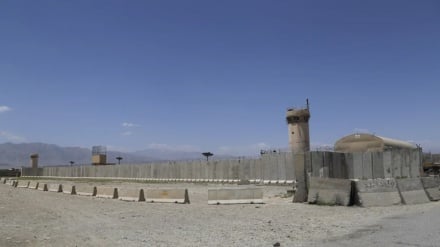Taliban govt. ban women from universities, sparking international outcry
The de-facto Taliban government in Kabul has announced an indefinite ban on university education for women in Afghanistan, sparking international condemnation and outcry.
The controversial decision was announced on Tuesday by the Ministry of Higher Education, saying it would take immediate effect.
The latest move is likely to complicate the Taliban’s efforts to gain international recognition and get rid of sanctions that have crippled the Afghan economy.
The United Nations and several countries condemned the government order. The UN's Special Rapporteur to Afghanistan said it was "a new law further violating the right to equal education and deepens the erasure of women from Afghan society."
In neighboring Pakistan, government officials said they were "disappointed" by the Taliban's decision but still advocated engagement with the group.
"I still think the easiest path to our goal - despite having a lot of setbacks when it comes to women's education and other things - is through Kabul and through the interim government," Foreign Minister Bilawal Bhutto Zardari said.
Despite promising a moderate rule after forming the caretaker government last year, the Taliban have taken a series of controversial decisions.
They have banned girls from middle school and high school, restricted women from most employment, and even banned them from public parks and gyms.
The Taliban's spiritual leader who is based in the southern city of Kandahar has the final say on important decisions.
“This decision had been anticipated for weeks, prompting some Western officials to start talking about additional sanctions and further economic restrictions,” Graeme Smith, senior consultant at International Crisis Group, was quoted as saying.
“But the flood of outrage from the West will strengthen the resolve of the Taliban leadership, which defines itself as a bulwark against the outside world.”
Taliban leaders have said they want peaceful relations with the international community, but that foreigners should not interfere in the country's internal affairs.
The socioeconomic situation in the country continues to deteriorate as the US has refused to release the funds belonging to the country's central bank.
MG


